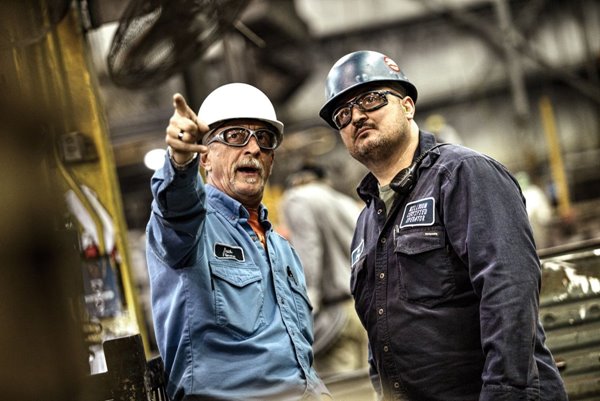Executives are warned that China's economic policies could present major challenges to local manufacturers
Corrinne Hess | Milwaukee Journal Sentinel
Executives are warned that China's economic policies could present major challenges to local manufacturers
The war between Russia and Ukraine has hit Wisconsin farmers and manufacturers with increased costs and supply chain issues, but Milwaukee's business community was warned Monday that China could present a larger problem.
University of Wisconsin-Milwaukee political science professor Shale Horowitz told the Greater Milwaukee Committee what is happening in China is similar to what is being seen in Russia — but on a larger scale.
"China's economy is huge, the size of the United States, while Russia's is about the size of Florida's," Horowitz said. "Over the last 30 years, China has become the world's factory, and supply chains all over the world became dependent on China."
Horowitz explained "decoupling," the idea that China is following a long-term strategy of reducing dependence on foreign technology and will eventually not do business with western countries.
"The goal is not to assume an equal position with countries like the United States, they want to dominate," Horowitz said. "These kinds of goals have been affecting other countries, and now they are coming for us and coming for our allies and we have to figure out how to adjust."
Austin Ramirez, CEO of Husco International, a global engineering and manufacturing company that provides hydraulic and electromechanical components for automotive and off-highway application, said the company's large factory outside Shanghai has been closed for the last 10 days since the resurgance of the pandemic. This has forced Husco to adjust to supply chain issues. "Initial plans are never adequate and you can never predict the next global emergency," Ramirez said. "Two years ago, no one could get face masks, so the knee-jerk reaction was to localize the supply chain. I can guarantee you the next emergency won't be face masks."
Ukraine conflict caused abrupt supply chain disruption
Horowitz said the Ukraine conflict caused an abrupt disruption in the export of raw materials including oil, gas, metals and grain, first because of politically imposed sanctions and then private companies responding.
A wide range of manufactured goods have been in short supply because of COVID-related trade disruptions and now the war in Ukraine. Wisconsin companies have gone from being worried about not having enough workers to dealing with broken supply chains.
Exports to Russia in 2021 were 109.1 million, with Russia ranking as Wisconsin's 35th largest export destination, between Egypt and Costa Rica, according to the Wisconsin Economic Development Corp.
Over the past 5 years, exports have hovered between $107 million and $121 million. Imports from Russia were at their highest level in 2021 compared with the past 10 years at $26.4 million, according to WEDC.
Wisconsin exports to Ukraine peaked at $60.5 million in 2017 and have been on a downward trend since, totaling just $20.6 million in 2021, according to WEDC.
Imports from Ukraine have been more stable, ranging between $3 million and $5 million since 2014, hitting $3.8 million in 2021.
Since the invasion of Ukraine at the end of February, a number of Wisconsin companies have stopped their operations in Russia, including SC Johnson, Harley-Davidson, Johnson Controls and Rockwell Automation.
Rockwell announced March 9 it was suspending business in Russia. Sales to Russia and Belarus represent less than 0.5% of Rockwell’s total revenue. The company will continue to pay salaries and benefits for its roughly 30 Russian team members.
Rockwell does not directly employ anyone in Ukraine or Belarus but has a large presence in Poland, Becky House, senior vice president for Rockwell told the GMC.

